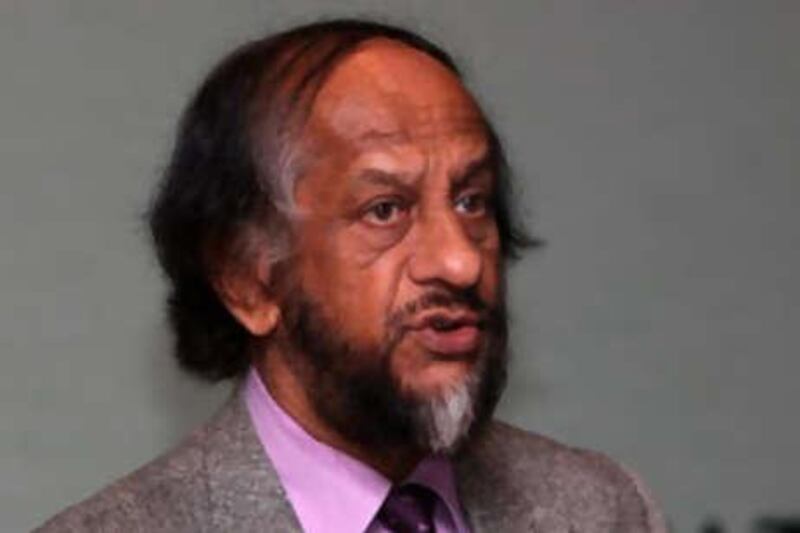ABU DHABI // Masdar, the capital's sustainability initiative, is hoping a multimillion-dollar prize will encourage researchers to speed up their quest for clean energy to address the global warming challenge. Researchers from around the world were yesterday invited to submit proposals for the Zayed Future Energy Prize, which will see the winning individual, company or organisation collect US$1.5 million (Dh5.5m).
The two finalists will each receive US$350,000. "It is our hope that this prize will inspire the world's greatest minds to focus their efforts on solving the challenges that our world faces today," said Sultan al Jaber, the chief executive of Masdar and director general of the Zayed Future Energy Prize. "We have a genuine interest in bringing the available technology to market." The initiative was announced earlier this year, while the financial details and call for submissions were announced yesterday.
Submissions will be reviewed by a panel of global experts chaired by Dr Rajendra Pachauri, a Nobel laureate and the chairman of the Intergovernmental Panel on Climate Change. "Time is of the essence, we have to move very quickly to come up with solutions," said Dr Pachauri. "There have been some incredible advances to lead us to solid and sustainable solutions in the future, but there is still a long road ahead ... The time has come for us to use technology on a scale that is large enough and in a manner that is practical."
Other jury members include Olafur Grimsson, President of Iceland, Khaled Irani, environment minister of Jordan, Ahmed Ali Al Sayegh, chairman of Masdar, Lord John Browne, managing director of Riverstone Holdings, Lord Norman Foster, founder and chairman of Foster + Partners, and Jeremy Rifkin, president of the Foundation on Economic Trends. Climate change is blamed for environmental trends such as the melting of the world's ice caps and increasing sea levels. Scientists have warned of more extreme weather, including heat waves and monsoons, an increase in vector-borne diseases and a decrease in agriculture productivity.
Technology is expected to play an important role in reducing the amount of greenhouse gases released into the atmosphere. In June, the International Energy Agency called for a global energy technology revolution. The agency's biennial publication, Energy Technology Perspectives, examined three energy technology scenarios. The first scenario suggests that if humanity continues to live as it does, by 2050 CO2 emissions will rise by 130 per cent and oil demand by 70 per cent - the equivalent of five times the amount of oil produced by Saudi Arabia today.
The second looked at containing CO2 emissions at current levels by 2050, while the third considered the advances needed to reduce greenhouse gases to half their current levels. But if the level of global emissions is to be halved by 2050, the world needs to spend US$45 trillion on new technology and its deployment. A number of clean energy technologies have been discovered and put into practice but, in a world that is just starting to put a price on CO2 emissions, these solutions are unable to compete with oil and coal when it comes to cost effectiveness.
A key requirement of the Zayed Future Energy Prize jury will be cost effectiveness. Other criteria includes sustainability and the ability to address longterm threats such as climate change, access to energy and security of energy supply. Details are available on the initiative's website, www.zayedfutureenergyprize.com. The website, launched yesterday, will be a focal point for prize nominations and submissions.
The winner and two finalists will be announced at the World Future Energy Summit, to be held in Abu Dhabi on Jan 19 2009. Masdar, also known as the Abu Dhabi Future Energy Company, consists of a number of sustainability initiatives including the US$250 million Masdar Clean Tech Fund and the Masdar Institute, a graduate-level energy and sustainability research institute formed in partnership with the Massachusetts Institute of Technology in the United States.
It also includes Masdar City - the world's first carbon-neutral city. Under development near Abu Dhabi International Airport, Masdar City will eventually accommodate 90,000 people. It will derive its energy from renewable sources such as photovoltaic panels on the roofs of buildings and the use of concentrated solar power. The city will also burn some of the waste produced by its residents to produce energy.
vtodorova@thenational.ae





